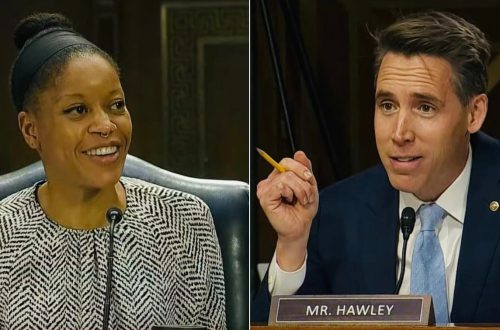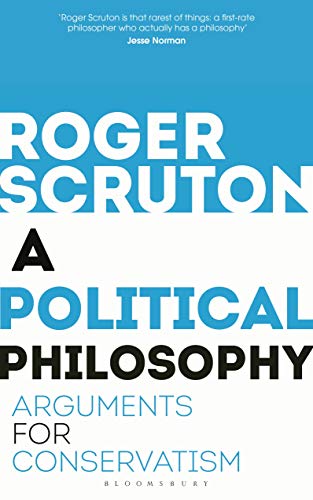 Joe Loconte of The Weekly Standard reports on a poll showing the anti-Americanism of America’s European allies. Loconte gives an explanation for this antipathy that is in part theological:
Joe Loconte of The Weekly Standard reports on a poll showing the anti-Americanism of America’s European allies. Loconte gives an explanation for this antipathy that is in part theological:
‘The poll, conducted between July 15 and August 31 and involving over 16,000 respondents, suggests that America’s European and NATO “allies” are in fact infested with legions of anti-American conspiracy theorists. A slight majority of Britons blame al Qaeda for the attacks (57 percent), but another 26 percent say they don’t know who the perpetrators were. The numbers were roughly the same for the French and the Italians, many of whom (8 percent and 13 percent, respectively) think the United States authored the act. Among Germans, nearly a fourth of all respondents (23 percent) finger the United States. Yes, one in four. . .
‘How is it that so many enlightened minds seem trapped in a byzantine world of political superstitions? How is it that the children of Rousseau and Voltaire embrace theories that draw strength from the forces of irrationalism and despotism? . . .
‘Perhaps the Enlightenment spirit of Voltaire is partly to blame. As Pope Benedict XVI has warned, Europeans who sever themselves from Christian doctrines are vulnerable to all kinds of ideologies eager to fill the void. Secular Europeans, slavishly devoted to the soothing powers of diplomacy, have a difficult time taking the problem of evil seriously, especially when it claims a religious sanction. They instinctively seek a political explanation–no matter how improbable. Americans, whose Constitution pays homage to the doctrine of original sin, find it easier to imagine the existence of individuals, and entire social movements, given over to moral and spiritual corruption. “The Bible says somewhere that mankind is desperately wicked,” quipped Abraham Lincoln. “I think I would have discovered that fact without the Bible.”‘
Read the rest here:
“The Irrationality of Anti-Americanism: A world gone mad” – by Joe Loconte (Weekly Standard)




17 Comments
Ken
The Lincoln quote puts me in mind of Chesterton’s observation that original sin is the only Christian doctrine that can really be proved, i.e., that is empirically verifiable.
Ferg
Is this article written from the perspective that American is “God’s country” and can do no wrong on the foreign policy front?
If so, it worries me. If it’s general observations, then it makes some valid points.
Ken
Hardly, Ferg. Mr. Lonconte offers a sober (and sobering) analysis of the several factors that may contribute to people’s willingness to believe crackpot conspiracy theories. He acknowledges that the Bush Administration has made numerous mistakes in the aftermath of 9-11 that squandered much of the good will and sympathy that event initially generated. The article is generally informed by a realistic view of world politics. It is neither self-exonerating nor self-excoriating.
John
Hey does seem to suggest that Americans are better than these other countries in this respect because “our constitution pays homage to the doctrine of original sin.”
It doesn’t matter what “our constitution” pays homage to, it doesn’t mean that people believe it. We’re just as bad as the rest of them, because we are all guilty in God’s eyes. We should never forget that.
Ken
Is it not better to have the concept of original sin built into the structure of our institutions than to have institutions that ignore it? At least the checks and balances are still there even if, as you say, the people themselves may have abandoned the idea.
Some restraint on sin is to be preferred to no restraint at all.
John
Agreed Ken, but I’m just saying that we’re no better just because we pay homage to the doctrine in our constitution. That’s the only point I wanted to make.
Nathan
Part of this issue might stem from the colonialism of America since the end of World War II. NATO was constructed due to the Cold War and the assistance of rebuilding Europe, but why do we (Americans) think that it is now our on-going responsibility to protect Europe, when they so often speak ill of us.
Many of the founders suggested alliances only for necessity, not for long-term. This was the policy of the United Statest, for the most part, until World War I.
Do we really believe that Georgia should get into NATO and that, if attacked (by Russia or another country), we would consider it an attack on American soil. That is, by the way, what the articles of NATO call for.
What vital interest do we have in Europe in the 21st century? Everything has changed since the breakup of the Soviet Union and Europe would love nothing more than to continue to press in on Russia, so long as we are in their back pocket, committed by an Iron Curtain era document called NATO.
Ken
We can debate the use of “colonialism” as applied to US foreign policy and activity following the Second World War–others have observed if this is empire-building it resulted in the most benign empire in the history of human civilization–but it is certainly true that NATO’s original purpose was to contain the expansionism of a very aggressive Soviet Russia under Stalin and his successors. One might well ask what vital interest the US had in doing so in 1948 that it does not have in 2008, given the recent behavior of Russia.
I will agree that Europe has largely indulged its post-war pacifism (hey, if I’d had to suffer through two widespread, destructive wars in the space of two generations I’d be unhappy about the prospect of starting another) because it had the luxury of US protection.
The 18th-century advice to avoid entangling alliances was designed to keep an isolated, distant America from getting embroiled in Europe’s perpetual family squabbles. I don’t think the Founders would find such advice tenable any longer. They never had to worry about ICBMs.
Nathan
Ken,
I agree that it is benign, but only in the sense of actual territory under U.S. control. However it is anything but benign in terms of personell and money.
Also, I do think the founders would consider declaring war on Russia over a country like Georgia insane at best.
While there were many conflicts that early America entered into, none of them were because of treaties signed saying that if that country were attacked, we would consider it an attack on America.
The last time I looked, none of the additional countries that have been included into NATO or are being included into NATO have ICBMs. In fact, we have more to worry about pushing NATO alliances into the backyard of Russia.
How did the US respond to the Soviets putting missiles in Cuba?
Paul
Ferg in #2:
“Is this article written from the perspective that American is “God’s country†and can do no wrong on the foreign policy front?”
Yes. It’s in the weekly standard. A newspaper founded by a guy named William Kristol who is on the nutball fringes of the neo-con movement.
Just like I don’t really listen to Democracy Now unless I’m looking to be entertained, I can’t see how a conservative can read the Weekly Standard with a straight face.
Jeff Bailey
The same way a liberal reads the New York Times.
Ferg
the same way an egalitarian armenian reads Denny Burk’s blog!! ;o)
Ken
“How did the US respond to the Soviets putting missiles in Cuba?”
With an illegal naval blockade that was successfully spun as a “quarantine.” It worked, the Soviets blinked, and the missles went away.
Look, I personally think it’s silly to posit what the Founders would think or say about the course of American foreign and defense policy in the 20th/21st century. Theirs was an entirely different world. The oceans really did constitute a barrier to European meddling (although the British very nearly proved that wrong in the War of 1812, but we probably brought that one on ourselves). Force projection was hard. Communications were exceedingly slow. Whatever rightful criticisms of current intelligence gathering and results, what is done now is far more sophisticated than what was available and practical then. What we have to decide is, what are vital American interests overseas? What does it take to defend those interests? How can we be good friends to our friends? How can we best confront and contain our enemies? How can we discourage aggression home and abroad? Like it or not, up until now at least, America has the role of leadership of the so-called free world. Is it legitimate or even desirable to relinquish that role? What would the outcome be if we decided to take our baseball and go home? Is it even possible to go home now?
Nathan
“Like it or not, up until now at least, America has the role of leadership of the so-called free world. Is it legitimate or even desirable to relinquish that role? What would the outcome be if we decided to take our baseball and go home? Is it even possible to go home now?”
I think that is exactly the question that needs addressing.
As I said in earlier posts, I don’t even believe that the majority of Americans realize that the articles of NATO demand we go to war if a fellow NATO country is invaded. If they did I don’t believe they would say Georgia or Belarus or even Poland justifies our declaring war on Russia, if Russian sends troops in.
For that matter, with the disdain that France and other European countries show the United States, we should wonder if THEY would come to our defense.
My guess is, based on recent history, that we should have no confidence in anyone, but perhaps the Aussies and the Brits. And the Brits are beginning to re-think their allegiance to us.
And the Aussies aren’t even part of NATO, but they are our best ally when you look at who has supported us with actual troops.
Ken
Just for the sake of discussion, what are legitimate US interests abroad right now?
NATO grew out of the WWII alliance against Nazi Germany in response to an increasingly aggressive Soviet Russia and her satellite states. Soviet Russia is gone (but I suspect there are still Soviets afoot and in high places in the Kremlin) and the satellite nations are now more or less independent countries. The USSR has also undergone a partial break-up, although it wouldn’t take much force to herd up the wanderers.
So what is NATO’s role today? Who are we defending ourselves against? And are our friends still on the same page we are? France jumped ship a long time ago and often liked to think of herself as a counterbalance to US superpowership in the period from de Gaulle to Chirac; Sarkozy seems a lot friendlier to the American perspective, but how much does he really represent the view of the French as a whole? As you said, the British are re-thinking, but that probably goes to the decline of their own civilization–I say that with great personal sorrow, but Britain is no longer great, for she has cast of the moorings of her own culture. She is where we may be in another generation or so if current trends continue. Ferg may be mad at me for saying that.
Nathan
I’m not sure the US knows what is or is not legitimate right now. Again, why are we putting our servicemen and women at risk over nations in the former Soviet satellite region. I certainly understand Europe’s desire to continue to pressure Russia, but ours?
You could also add South Korea to this discussion as most of the leaders of South Korea don’t really want our presence there. Are we really going to go to war again over that pennisula when many of both the North and the South want unification (see Olympic participation).
As it stands, our current engagements are draining us, but when we have over two divisions elsewhere, protecting people who continually seem to despise us, something needs to be done.
I’m not sure I have the answer, but I am really skeptical of expanding NATO in this post-Soviet world.
Ken
Actually, I rather doubt the leadership of South Korea desires the US to leave, but I’m open to correction on that. IMS, it’s some of the citizenry that has overly romantic ideas about reunification with the North that advocates US departure. Undoubtedly the North would like to unify with the South and make the entire peninsula one grey bleak impovershed landscape. Or another Chinese province.
We’ve left bases before when we’re no longer wanted. When I was on active duty we still had operations going in the Philippines and Greece–no longer. And the number of bases in western Europe was considerably higher then than now. Of course, we now have a much greater footprint in the Middle East, courtesy of Saddam’s little adventure in 1990.
Despise us? Some do, perhaps. More are simply resentful or envious. Some, like the Greeks, kicked us out for political reasons and took the economic hit. I rarely encountered any real anti-Americanism when I was abroad twenty years ago. Perhaps that’s changed now. Much of Europe that used to remember WWII is gone. But not everyone has short memories.